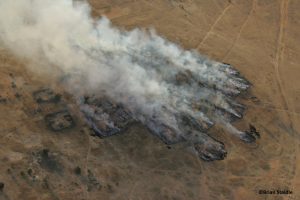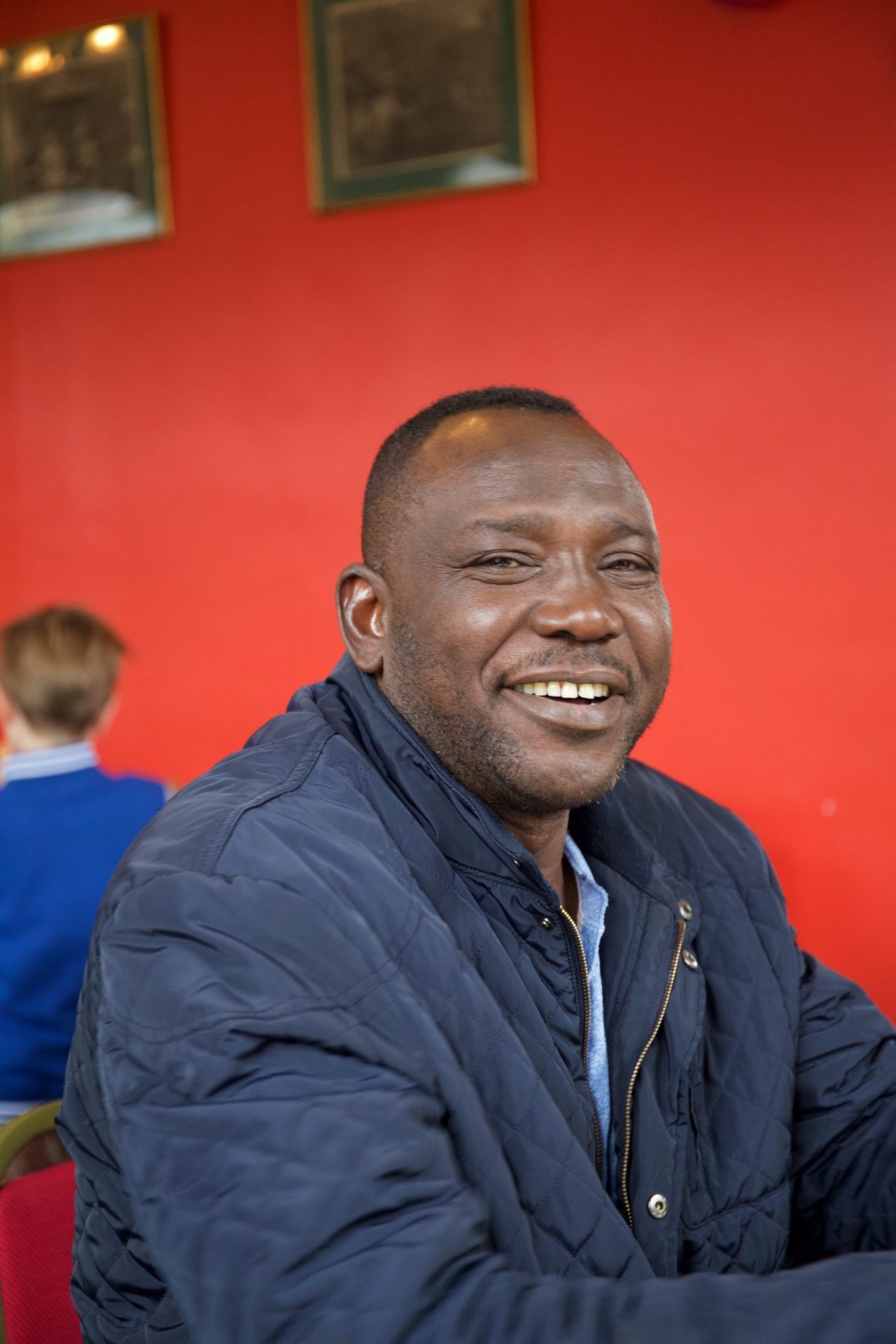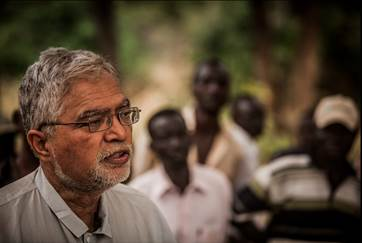Genocide in Darfur
In 2003 two Darfuri rebel groups, the Sudan Liberation Movement (SLM) and the Justice and Equality Movement (JEM), launched attacks on Sudanese Government military targets. The Sudanese Government reacted by arming militia – the Janjaweed (which translates as ‘devils on horseback’) – to attack black African people in Darfur who were perceived to be supportive of the rebels.

Unknown village, Darfur ©Brian Steidle
The Janjaweed used ‘scorched earth’ tactics which caused a humanitarian catastrophe in Darfur. Thousands of villages were destroyed, hundreds of thousands of people were murdered, and millions forced to flee their homes. Refugees from Darfur said that after Government-ordered air raids on villages, the Janjaweed rode into villages, slaughtered the men and raped the women, before stealing whatever they could.
A special panel of experts set up by the United Nations in 2004 stopped short of calling the conflict in Darfur genocidal. However, the US Congress declared atrocities in Darfur to be genocide in July 2004, and the International Criminal Court (the ICC) issued indictments against the President of Sudan, Omar al-Bashir for three counts of genocide on 12 July 2010. Al-Bashir continues to resist arrest, despite having been removed from power in 2019.
In addition, in the lead up to South Sudan’s independence in 2011, fighting broke out between the Sudanese Government and rebel groups in the border regions of South Kordofan and Blue Nile. In 2014, Omar al-Bashir incorporated the Janjaweed militia groups into the Sudanese Armed Forces, renamed as the ‘Rapid Support Forces’, or R.S.F.
Before Al-Bashir’s downfall, reports were made that government forces were attacking civilians in South Kordofan, Blue Nile and the Nuba Mountains, based on racial and religious identity, and employing the same ‘scorched earth’ policies as were used in Darfur. Since then, the Rapid Support Forces (largely made up of former members of the Janjaweed) have reportedly continued with this campaign of violence in the city of Geneina and the state of West Darfur. These conflicts have not been defined as genocide, and it is difficult to get information about the scale of these atrocities, due to restrictions on communication in these areas. However, they shed light on Sudan’s ongoing human rights abuses.


